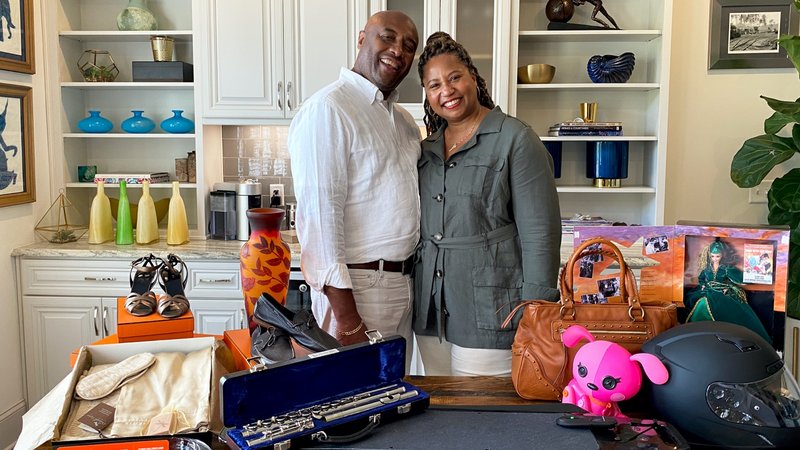The United States closed out 2020 with an unemployment rate of 6.7%, nearly two times greater than before the pandemic began. Amid COVID-19, more people are looking for ways to earn extra income — and, according to eBay’s latest survey of its sellers, they’re finding it in recommerce.
Recommerce, or the resale of pre-owned goods, has quickly become a pathway for sellers to mitigate financial challenges brought on by the pandemic. Released today, eBay’s new Recommerce Report finds that almost three-quarters of sellers surveyed began selling pre-owned goods last year for supplemental income — approximately 14% said they specifically turned to recommerce, because they lost their jobs due to COVID-19.
Moreover, eBay’s new survey shows that more people, particularly Generation Z, are turning to buying and selling secondhand goods online to support a healthier planet and sustainability efforts overall.
“eBay is committed to helping entrepreneurs thrive on our marketplace,” said Chief Sustainability Officer Renee Morin. “Recommerce is providing our community, across all generations and around the world, with an additional avenue of economic opportunity during the global pandemic — while also highlighting the sustainable benefits of buying and selling pre-owned items.”
Finding Opportunity in Household Items
What bolsters this trend around recommerce is the fact that the majority of sellers are finding items to sell on eBay within their own households. According to the survey, 85% of people in the U.S. who have sold pre-owned goods on eBay simply found these items to sell at home from things they no longer use. In fact, the survey shows that Americans have an average of 36 items around their households that can be resold at an estimated $3,675 — a potentially significant boost to their wallets.
eBay sellers are not only finding additional ways to earn income in selling pre-owned items but are also reaping the benefits of recommerce as consumers. Approximately 80% of eBay sellers indicate they bought pre-owned goods themselves in the last year, with 78% saying they’ve purchased pre-owned at least once every three months. The report also finds that buying secondhand is gaining more popularity, with nearly three-quarters, or 72%, of U.S. respondents saying that buying pre-owned products has become more common in recent years.
As sellers achieve an additional income stream from listing their pre-owned items, shoppers can discover new treasures at more affordable prices. And these treasures run the gamut, with pre-owned technology and electronics items being the most popular and profitable, and apparel like sneakers, clothing and bags coming in at a close second. Almost one-third, or 28%, of U.S. sellers say that technology and electronics items secure maximum sales, leading to over half of those surveyed, at 51%, focusing on selling such products.
Generation Z’s Role in the Recommerce Revolution
In both cases – buying and selling – eBay’s survey found that Generation Z plays a major role in driving the recommerce revolution forward. Globally, 73% of survey respondents aged 18 to 24 say they are considering selling for the financial benefit – over double the average across all generations. At the same time, Gen Z is also buying more pre-owned goods than other generations, with 81% of 18- to 24-year-olds saying that buying pre-owned has become more common in the last year.
Of course, the added bonus of recommerce is how it’s better for the environment overall. Recommerce helps to preserve the world’s natural resources and reduce our carbon footprint — from saving on the water and energy typically used in producing new goods to preventing items being sent to landfills.
For New York resident Hannah Stringer, shopping secondhand is a way for her to support greener living and the environment. “It’s a myth that you must buy more eco-friendly items which are often more expensive and cost prohibitive for many communities. In actuality, recommerce is the most effective strategy as a consumer taking on a climate crisis,” she said. “eBay has rebuilt my consumption lifecycle. I buy pre-owned goods with the intention of keeping them for a lifetime.”
For sellers, eBay’s survey finds that sustainability and concern for the environment is an important reason for selling pre-owned goods in addition to the financial benefits it offers. About 16% of U.S. respondents say that the sustainability and environmental benefit is a motivation for selling pre-owned items, while this number is higher for other countries like Germany (39%), France (34%) and the United Kingdom (32%). This motivation increases when considering selling in the future: About 30% of U.S. respondents say that the sustainability and environmental benefit of recommerce is among their top reasons to start selling pre-owned goods.
At eBay, we’ve always been rooted in our purpose to empower people and small businesses to create economic opportunity. Indeed, over the course of 2020, we invested more than $100 million in small businesses through global programs like Up & Running, an initiative that helps small businesses get and grow online.
Read eBay’s full Recommerce Report to learn more about how recommerce is creating economic opportunity for sellers, while also bringing joy to shoppers and supporting a more sustainable future.
Additional Key Findings from eBay’s Recommerce Report:
-
About 87% of U.S. respondents say that they have sold pre-owned goods in the last 12 months.
-
Of those that haven’t sold recently, 53% of U.S. sellers say that they are likely to start selling pre-owned goods in the future.
-
About 56% of U.S. respondents say they now sell more pre-owned goods than they did 1-5 years ago.
Survey Methodology
Over the course of about four weeks, we surveyed 4,330 of eBay’s consumer- to- consumer (C2C) sellers in the U.S., U.K., Canada, Germany and France, from Oct. 12, 2020, to Nov. 9, 2020. In the U.S. and Canada, this includes all sellers with less than $10,000 gross merchandise value (GMV) or fewer than 25 transactions in a year. In the U.K, Germany and France this includes any seller who identifies themselves as C2C.


